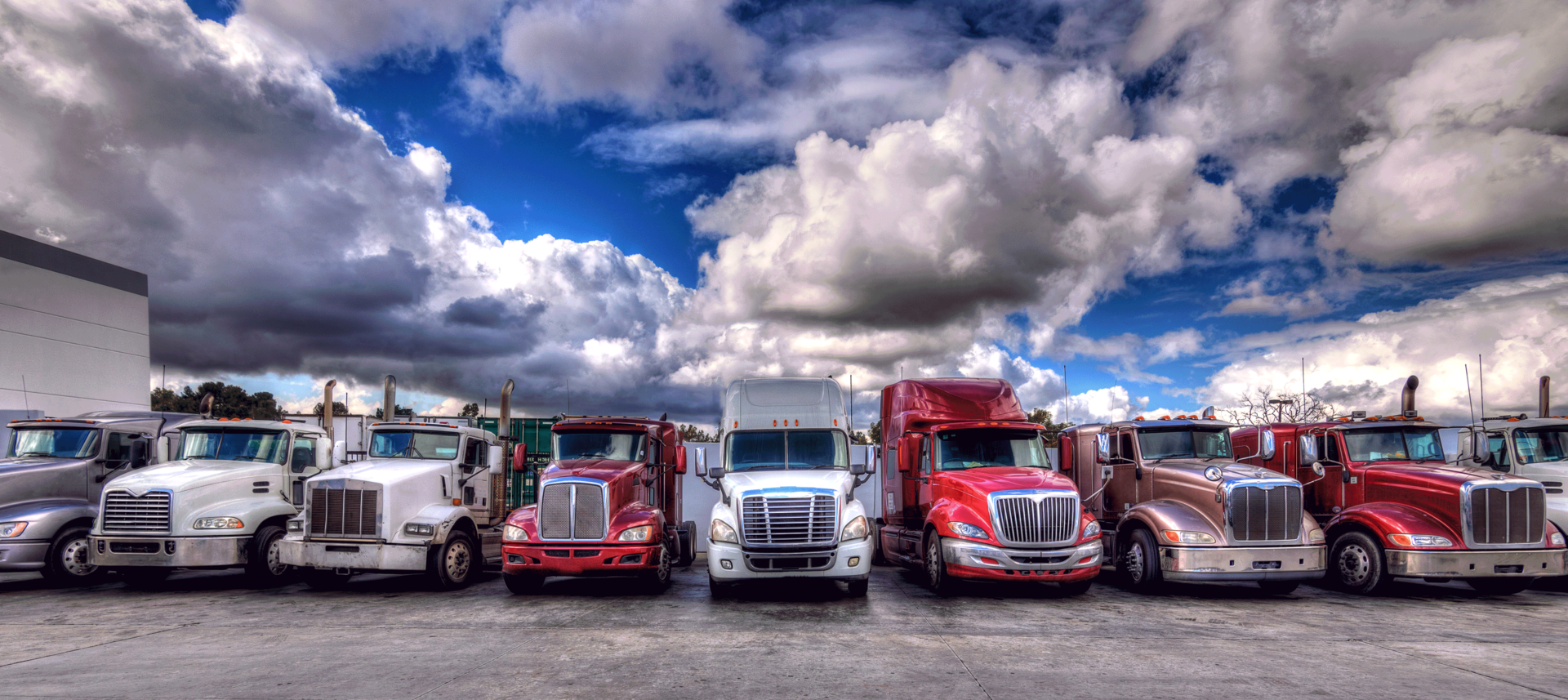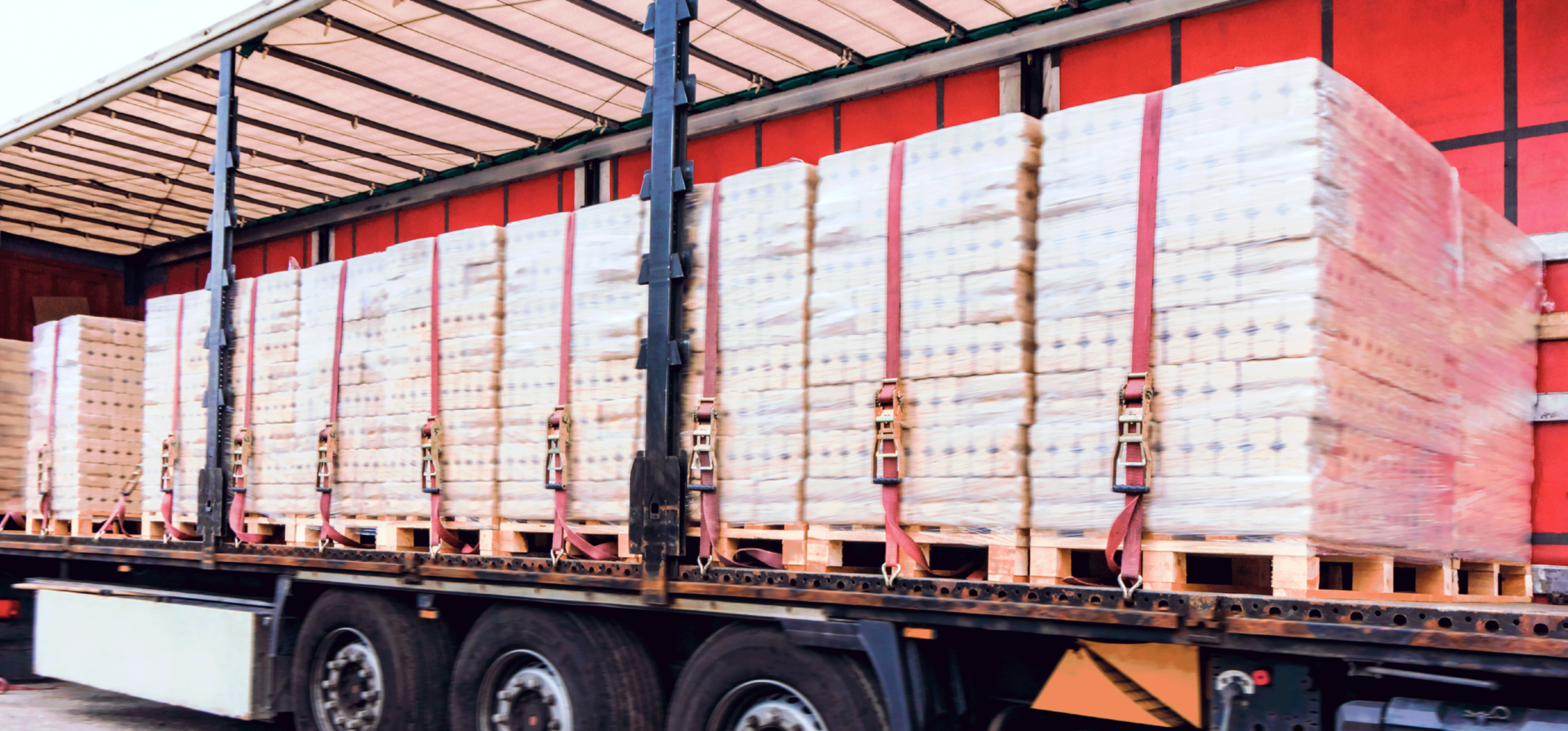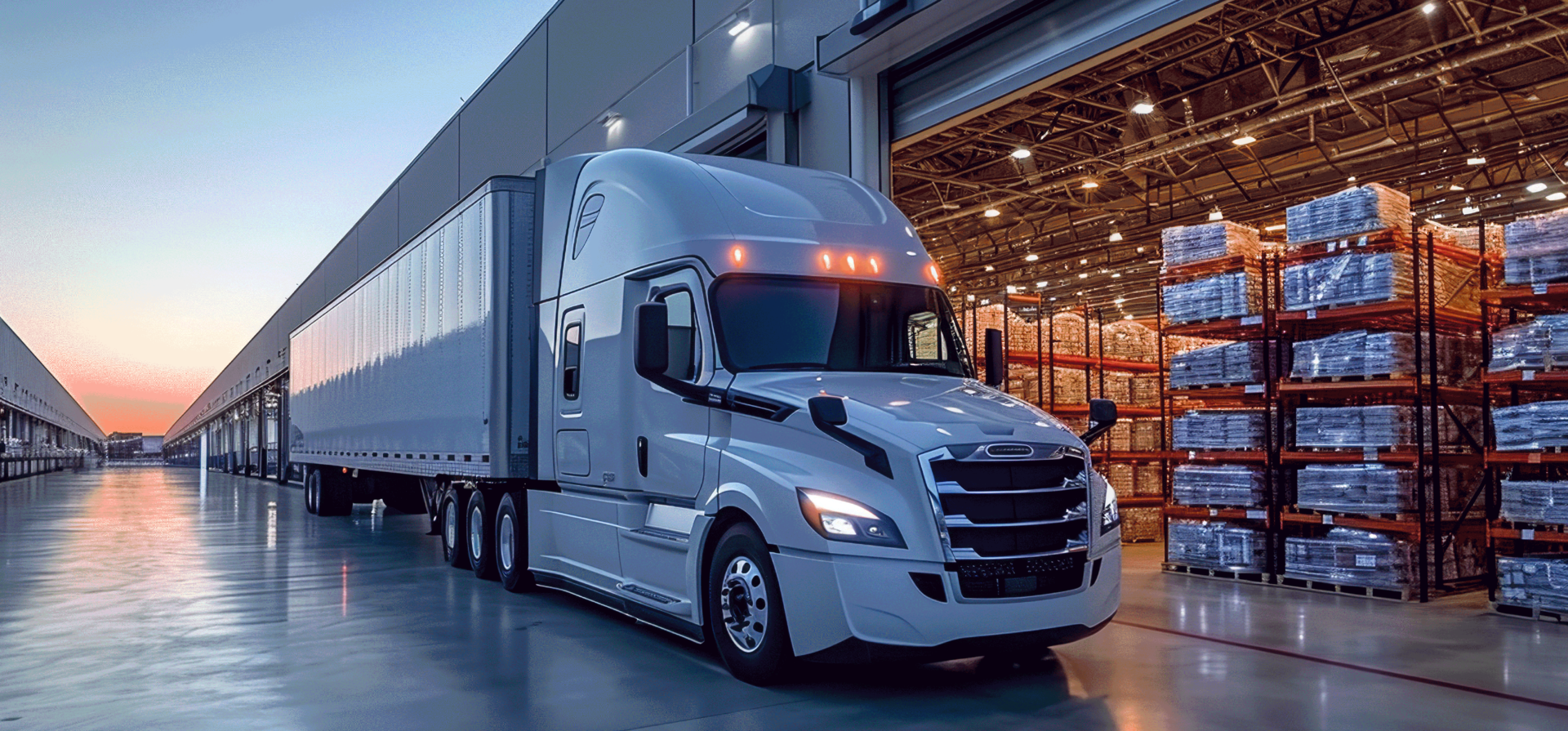Freight shipping plays a crucial role in global trade by efficiently moving goods across long distances at a lower cost, while ensuring that supply chains stay flexible and responsive to market needs. Understanding the ins and outs—from various shipping methods to specialized trucks—is essential for businesses aiming to optimize their shipping processes. In this guide, we explore different types of freight shipping, examine the roles of specialized trucks, and discuss strategies for selecting the best carrier for your cargo. Whether you're a seasoned logistics manager or simply curious about the logistics industry, join us to gain valuable insights that can enhance your business operations.
Different Categories of Freight Shipping
Freight shipping is a vital cog in the wheel of global trade. It's the lifeblood that keeps goods moving across continents and oceans.
Understanding the different categories of freight shipping is crucial. It helps businesses make informed decisions about their shipping needs.
This article explores the various types of freight, examining the different types of freight trucks and their specific uses.
We'll also discuss how to match your cargo to the right carrier. This can significantly impact cost efficiency and safety.
Whether you're a logistics manager, a business owner, or just curious, this guide will provide valuable insights. Let's embark on this journey to understand the world of freight shipping better.
Understanding Freight Shipping and Its Significance
Freight shipping is the process of transporting goods in large quantities. It's a critical component of the supply chain.
This process involves various modes of transportation. These include trucks, trains, ships, and airplanes. The choice of mode depends on factors like distance, cost, and the nature of the goods.
Freight shipping plays a pivotal role in global trade. It enables businesses to reach markets far and wide. It's the backbone that supports the global economy.
Understanding the different types of freight shipping is essential. It helps businesses optimize their logistics strategy. It also aids in reducing costs and improving efficiency.
Types of Freight: An Overview
Freight shipping is categorized based on the size and type of cargo. The main categories include Less Than Truckload (LTL), Full Truckload (FTL), Partial Truckload (PTL), and Intermodal.
Each category has its unique characteristics. They cater to different shipping needs. The choice depends on factors like cargo size, urgency, and cost.
Here's a brief overview of each type:
- Less Than Truckload (LTL): Suitable for smaller shipments that don't require a full truck.
- Full Truckload (FTL): Ideal for large shipments that fill an entire truck.
- Partial Truckload (PTL): A middle ground between LTL and FTL.
- Intermodal: The transportation of freight in an intermodal container, using multiple modes of transportation
- Liquid Bulk: Transportation of liquids in large quantities.
- Dry Bulk: Transportation of dry, unpackaged goods in large quantities.
Let's delve deeper into each category, including Liquid Bulk and Dry Bulk freight.
-
Less Than Truckload (LTL) Shipping
LTL shipping is a cost-effective option for small shipments. It's ideal for cargo that doesn't fill an entire truck.
In LTL shipping, multiple shipments share the same truck. Each shipment pays for its portion of the truck space. This makes it a budget-friendly option for small businesses.
However, LTL shipping may take longer. This is due to multiple stops for pickup and delivery. If time is a critical factor, other options might be more suitable.
-
Full Truckload (FTL) Shipping
FTL shipping is the go-to option for large shipments. It's suitable for cargo that fills an entire truck.
In FTL shipping, the entire truck is dedicated to one shipment. This results in faster delivery times. There are no stops to pick up or deliver other shipments. However, FTL shipping can be more expensive. It's best suited for large, heavy, or high-value shipments.
-
Partial Truckload (PTL) Shipping
PTL shipping is a middle ground between LTL and FTL. It's ideal for shipments that are too large for LTL but too small for FTL.
In Partial Truckload shipping, the cost is often based on the space used. It's more cost-effective than FTL for medium-sized shipments.
However, like LTL, PTL shipping may involve multiple stops. This could result in longer delivery times.
-
Intermodal Freight Shipping
Intermodal freight shipping involves moving freight using multiple transportation modes, such as trucks, trains, and ships, with the cargo loaded into intermodal containers. These containers allow seamless transfers between different modes without handling the freight directly.
There are two main types of intermodal shipments: international and domestic. International intermodal shipments use 20- or 40-foot containers, which remain in the same container throughout their journey across ocean carriers, trucks, and trains. Domestic intermodal shipments use 53-foot containers. Although they may start as international shipments in smaller containers, they are transferred to larger domestic containers at ports or distribution centers for the inland journey.
The process for domestic intermodal shipping typically works as follows:
- Products are loaded into a container on a truck chassis.
- The truck transports the container to an intermodal ramp, a short distance away, in a movement called "drayage."
- At the ramp, the container is transferred from the truck chassis to a train car for the long-haul segment.
- Upon reaching another intermodal ramp, the container is transferred back to a truck for final delivery to a warehouse, store, or distribution center.
This method enhances efficiency, reduces handling, and ensures secure and cost-effective transportation over long distances.
-
Liquid Bulk Freight
Liquid bulk freight involves the transportation of liquids in large quantities. Tanker trucks or ships are commonly used for this type of freight.
This category is crucial for industries like oil and gas, chemicals, and food and beverages. Specialized tanks are used to transport liquids safely and efficiently.
-
Dry Bulk Freight
Dry bulk freight involves the transportation of dry, unpackaged goods in large quantities. These goods are usually homogeneous and are not in containers.
Common examples of dry bulk cargo include grains, coal, ores, and cement. Specialized trailers or containers are used for loading and unloading these goods.
Types of Freight Trucks: Matching Cargo to Carriers
Freight trucks are designed to carry different types of cargo. The choice of truck depends on the nature of the goods.
Here are the main types of freight trucks:
- Dry Van
- Flatbed
- Refrigerated (Reefers)
- Tanker
- Specialized Freight Trucks
Each type of truck is designed for a specific purpose. Let's explore each one in detail.
-
Dry Van Shipping
Dry van shipping is the most common type of freight transportation. It involves enclosed trailers that protect goods from weather and road debris.
Dry vans are versatile. They can carry a wide range of goods, from packaged food to furniture.
However, they are not suitable for oversized or temperature-sensitive goods. For these, other types of trucks are needed.
-
Flatbed Shipping
Flatbed trucks have an open trailer. This makes them ideal for oversized or irregularly shaped cargo.
Flatbed shipping is often used for construction materials, machinery, and large equipment.
However, goods on a flatbed are exposed to weather and road conditions. They require proper securing and covering.
-
Refrigerated Shipping (Reefers)
Refrigerated trucks, or reefers, are used for perishable goods. They have temperature-controlled trailers.
Reefers are essential for transporting food, pharmaceuticals, and other temperature-sensitive goods.
However, they are more expensive than dry vans or flatbeds. The cost of maintaining the right temperature adds to the shipping cost.
-
Tanker Shipping
Tanker trucks are designed for liquids and gases. They are used for fuel, chemicals, and food-grade liquids like milk or juice.
Tanker shipping requires special safety measures. This is due to the potential hazards of the cargo.
However, tanker trucks offer a safe and efficient way to transport liquids and gases.
-
Specialized Freight Trucks
Specialized freight trucks are designed for specific types of cargo. This could include hazardous materials, heavy machinery, or delicate electronics.
These trucks have special features. They may have reinforced trailers, advanced suspension systems, or climate control.
However, specialized trucks are more expensive. They are used when the nature of the goods requires special handling.
Choosing the Right Freight Option for Your Needs
Choosing the right freight option is crucial. It affects the cost, speed, and safety of your shipment.
First, consider the nature of your goods. Are they large or small? Are they fragile or sturdy? Do they require a specific temperature? The answers to these questions will help you choose the right type of freight and truck.
Next, consider your budget and timeline. Faster shipping methods like air freight are more expensive. On the other hand, slower methods like ocean or rail freight are more cost-effective.
Finally, consider the destination of your shipment. For domestic shipments, truck freight is often the best option. For international shipments, you may need to consider ocean or air freight. Always choose the freight option that best suits your needs and ensures the safe delivery of your goods.
The Future of Freight: Trends and Innovations
The freight industry is constantly evolving. Technological advancements are driving changes in the way goods are transported.
Autonomous trucks and drones are two examples of these advancements. They have the potential to revolutionize the industry by increasing efficiency and reducing human error. However, they also present new challenges in terms of regulation and safety.
Sustainability is another key trend in freight. As environmental concerns become more pressing, the industry is seeking ways to reduce its carbon footprint. This includes the use of alternative fuels and energy-efficient vehicles. The future of freight is exciting and full of possibilities.
Conclusion: Optimizing Your Freight Shipping Strategy
Understanding the different types of freight and freight trucks is crucial for optimizing your shipping strategy. It allows you to choose the most cost-effective and efficient method for transporting your goods.
If you're looking for comprehensive support in managing all your freight transportation needs, Jillamy can assist. Whether you require Less Than Truckload (LTL), Full Truckload (FTL), Partial Truckload (PTL), or specialized freight services, Jillamy provides tailored solutions to meet your requirements. With their expertise in logistics and commitment to efficient delivery, Jillamy ensures reliable and seamless transportation solutions for businesses of all sizes.
However, it's not just about choosing the right type of freight. It's also about staying abreast of trucking industry trends and innovations. This will enable you to adapt your strategy as the industry evolves.
In conclusion, a well-planned and flexible freight shipping strategy can significantly enhance your business operations. It can help you meet customer expectations, control costs, and stay competitive in the ever-changing world of logistics.
For more information and to optimize your freight shipping strategy, contact Jillamy today.




